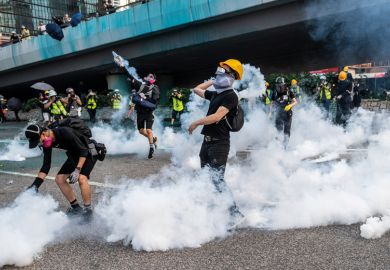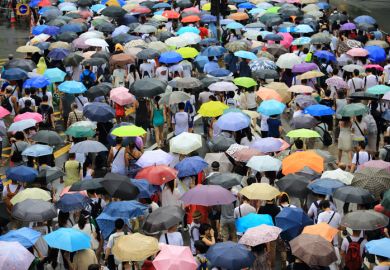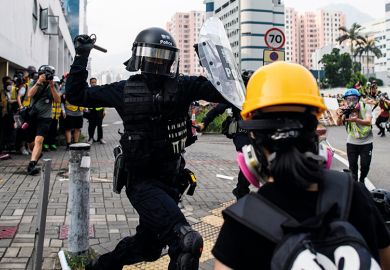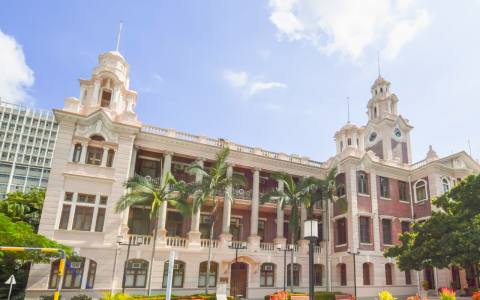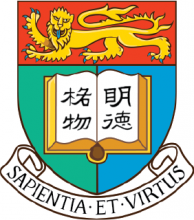Hong Kong’s status as an academic hub could be undermined by the protests that have gripped the territory, scholars fear.
Cancellations of a conference and student exchange programmes have been seen as early signs of the potential impact of the demonstrations and the increasingly authoritarian response of the Hong Kong government.
And although many academics are sympathetic to protesters’ demands for greater democracy, they are conscious that the reputation of Hong Kong’s universities hinges on the city’s high level of academic freedom and its position as a global travel hub.
Steve Tsang, director of the China Institute at SOAS University of London, told Times Higher Education that the impact “will depend on what happens in the next few months”.
“Universities with collaborations with Hong Kong institutions are unlikely to make major changes at the moment. But if the situation in Hong Kong continues and deteriorates, partner universities elsewhere will have to review some of the practical arrangements,” Professor Tsang said.
“We in universities have a duty of care to our students, and we would prefer not to send our students in harm’s way. But the situation in Hong Kong has not reached such a point – at least in my view.”
Others appear to feel that that point has already been reached. Singapore’s Education Ministry has told its public universities to postpone trips to Hong Kong, including those related to exchange programmes involving more than 100 students.
The Association of Pacific Rim Universities said it was cancelling a major conference on global health set to take place at the University of Hong Kong (HKU) next month and rescheduling it for 2021. The university was “aware of the concerns of some foreign visitors about visiting Hong Kong at this particular time”, the APRU said.
HKU said that its enrolment of international students this year remained “robust”. The institution’s undergraduate programmes admitted some 700 non-local students this term, about half of whom are from mainland China. A “very small” number of students had decided not to enrol for various reasons, a spokeswoman said.
However, concerns have been raised about the welfare of Hong Kong academics and students making trips to mainland China. A survey conducted by the Hong Kong Professional Teachers’ Union in August found that 93.6 per cent of respondents were “quite concerned” or “deeply concerned” about themselves or their colleagues crossing the border.
“There were reports in August that officials were checking Hong Kong residents’ mobile phones, which caused worries,” said Ip Kin-yuen, a member of Hong Kong’s legislative council and the union’s vice-president. “However, the level of these checks seemed to have gone down in September, so hopefully this is a short-term situation.”
Hong Kong’s two medical schools – at HKU and the Chinese University of Hong Kong – have delayed or cancelled trips across the border, which are normally a required part of the curriculum.
HKU did not give a reason for its decision, but it came after students posted on Facebook that mainland officials were checking personal electronic devices and asking that protest-related materials be deleted.
CUHK acknowledged “misgivings over doing internships in mainland China at this particular time”, and has arranged for students to take mainland-based internships at a later date.
Register to continue
Why register?
- Registration is free and only takes a moment
- Once registered, you can read 3 articles a month
- Sign up for our newsletter
Subscribe
Or subscribe for unlimited access to:
- Unlimited access to news, views, insights & reviews
- Digital editions
- Digital access to THE’s university and college rankings analysis
Already registered or a current subscriber?

